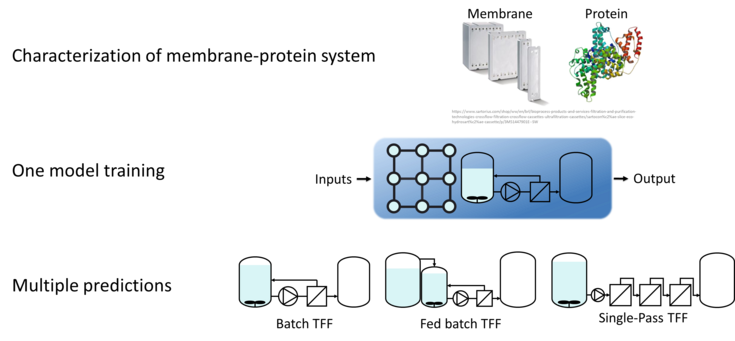Hybrid modeling of cross flow filtration for biopharmaceutical production
SUPERVISOR: Astrid DÜRAUER
PROJECT ASSIGNED TO: Maximilian KRIPPL
Mechanistic, also called parametric, models are useful tools to describe bioprocesses, but struggle with increasing process complexity. Data-driven (non-parametric) models, on the other hand, can describe relationships without fundamental system knowledge, but require extensive model training. Hybrid models are a combination of both approaches that feature the following advantages: improved understanding of the system, yet not all parts of the model need to be fundamentally understood and lower requirements on the data.
During the PhD thesis, crossflow filtration processes are modelled using combinations of parametric and nonparametric models. Filtration processes are an excellent target application for hybrid modeling since well understood fundamental relations, e.g., transmembrane pressure to permeate flux, can be extended with additional influences derived from data-driven models, e.g., impact of impurities or the influence of using multiple membranes instead of one.
The aim of this thesis is to develop solutions that help understanding filtration processes and predicting the impact of various input parameters on the process outcome. The focus lays on using a minimal data set for setting up the model. Additionally, the model should be easily transferrable from batch to continuous mode to increase its flexibility and further reduce experimental effort. Further, more complex scenarios such as multiple components in solution will be predicted with hybrid modeling, which currently is a major drawback of mechanistic models. The final models are evaluated statistically and compared by means of complexity and interpretability.
This project is carried out in the framework of a Research Studio Austria project funded by the Austrian Research Promotion Agency FFG.

